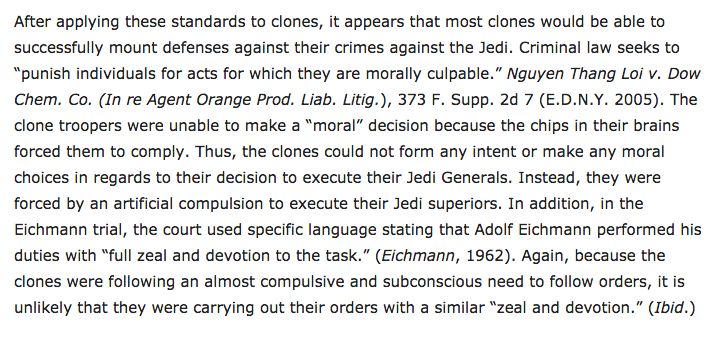 Hometown: Davis, CA
Hometown: Davis, CA
Education: UCLA 2015
Affiliations: Publishing Editor, Berkeley Sports & Entertainment Journal; Asian Pacific American Law Students Association
I’m a big videogamer. I was part of the e-sports competitive video gaming club at UCLA. During OCI (on-campus interviews) I spoke a lot about how many aspects of competitive video gaming are applicable to litigation. As a litigator you have a limited amount of time and you have to pick and choose your strategy and the arguments you decide to present very carefully. People think of video gaming as a leisurely thing, but in the competitive world it’s actually a huge time crunch. The minute the game starts, every single second counts and you have to make your marks in a tight time frame. So that’s one of the reasons I’m attracted to litigation.
I really enjoy fantasy and sci-fi because they incorporate story arcs that make real-world issues accessible to a larger and younger audience. Within the Star Wars Clone Wars story arc, they show the impact of the war on refugees and citizens’ whose planet got caught up in the war. If you present a really deep article about genocide and war to a child or teenager, that’s too intense for them to understand. But if you introduce these ideas through something they are familiar with—everyone loves Star Wars—it helps them understand these issues without being bombarded in an overwhelming way.
Editor’s note: Inspired by a conversation with fellow Star Wars universe fan Justice Mariano-Florentino Cuéllar during his summer externship at the Supreme Court of California, James decided to apply his talent for legal analysis to his passion for the fantasy/sci-fi genre.
In his article, “Are Surviving Clone Troopers Guilty of War Crimes?,” The Legal Geeks, October 16, 2017, James applies IRAC analysis (and meticulous Bluebook citation) to determine whether clone troopers, who executed Jedi under programmed orders via “inhibitor chips” in the animated series Star Wars Rebels, could be found guilty of war crimes, excerpted here:
